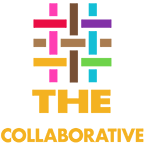“SOS is a community mobilization that works! Nothing else that I can think of has been as longstanding and has had the impact on Black women that SOS has [in Florida].” Kalenthia Nunnally, Director of Blessing Hands Outreach, Inc. and Chair of the Miami-Dade County Chapter of Sistas Organizing to Survive (SOS) shared this when HIV.gov spoke with her and two other leaders about the Florida Department of Health’s (FDOH) longest-running HIV initiative for Black women.
In our conversation, Ms. Nunnally, Leisha McKinley-Beach, National HIV Consultant and Founder of the Black Public Health Academy, and Kara Johnson Williams, MPA, MNM, HIV AIDS Program Coordinator at the Florida Department of Health in Orange County for the Area 7 HIV/AIDS Program Office, shared their thoughts about SOS, the Florida HIV/AIDS grassroots mobilization and initiative for Black women.
The evening before we talked, the women gathered to virtually celebrate SOS’s anniversary, its 15 years of service, and its continuing efforts to encourage Black women to get tested for HIV where they live, work, play, and worship. And they noted the state of HIV and Black women in Florida remains a disproportionate challenge, whereby Black women represented 63% of the HIV cases among women in 2017 compared to 60% in 2021, the last year of completed data. Read Florida’s Epidemiological Profile Report here for more information.
The subject of the disproportionate impact of HIV among Black women in Florida—and throughout the country—is not a reason to celebrate. However, our colleagues noted the importance of recognizing the initiative’s creative and innovative ways of reaching Black women to provide education and awareness regarding HIV testing, prevention, treatment, and care, which was inspiring.
The Beginning of SOS
In June 2008, the statewide SOS initiative was started at the FDOH with Black women leaders at the helm whose efforts specifically focused on other Black women in Florida. Prior to its inception, a report about HIV in the state was released. The data showed that the Black community, compared to other racial communities in Florida, had the highest rates of new HIV infections, perinatal HIV transmission, and cases of HIV among youth aged 13-19. “How can you see that kind of data and no action to follow?” noted Ms. McKinley-Beach.
As Ms. Johnson Williams reflected on the early days of SOS, she shared that funding the initiative and creating the existing six chapters throughout the state was challenging: “We needed action to support the data because we were behind the eight-ball with HIV prevention and testing for Black women.” And action followed. Within the first two years of the existence of SOS, the initiative tested over 100,000 Black women for HIV throughout Florida.
Innovative Ways of Reaching Black Women
As an FDOH employee, Ms. Johnson Williams highlighted the importance of collaborating with the community and its members in furthering the efforts of the SOS initiative. This collaboration is reflected in the leadership structure of SOS. Most chapters are led by co-chairs, one from the area department of health and one from the community. “Those who are actually in the field have more reach to the women that we’re trying [to reach] compared to a department of health,” noted Ms. Johnson Williams. Thus, the women employ unique and innovative ways, including partnerships with local organizations and businesses, to reach Black women regarding HIV prevention and testing. They often use well-known community ambassadors and social media influencers; they also entrench themselves in the environments where many Black women congregate—beauty salons, pool parties, churches, family reunions, adult entertainment venues, and sorority events, to name a few. “Our goal is to reach the niche of Black women who have fallen out of HIV care or who are not in care—we meet women where they are,” noted Ms. Nunnally, who has served as the SOS Chair in Miami-Dade County for the past 15 years.
Looking Forward to USCHA
As the HIV community gears up for this year’s United States Conference on HIV/AIDS (USCHA) September 6-9 in Washington, D.C., the women shared their excitement about the presence of SOS at the conference, where the theme will be, “A Love Letter to Black Women.” Each of the women is hopeful that the conference will highlight the commitment and motivation to center Black women, as Ms. McKinley Beach noted that SOS is the Florida model of “catching Black women wherever they fall along the entire HIV spectrum.” She passionately added, “I want folks to be clear that there are some Black women who have been building, framing, and creating initiatives and programs like SOS since the very beginning. It’s beautiful to get our flowers, but it’s also important to acknowledge that Black women haven’t been waiting on a savior, we’ve been saving ourselves, and the HIV space is no different!”

 Cross-posted from HIV.gov
Cross-posted from HIV.gov